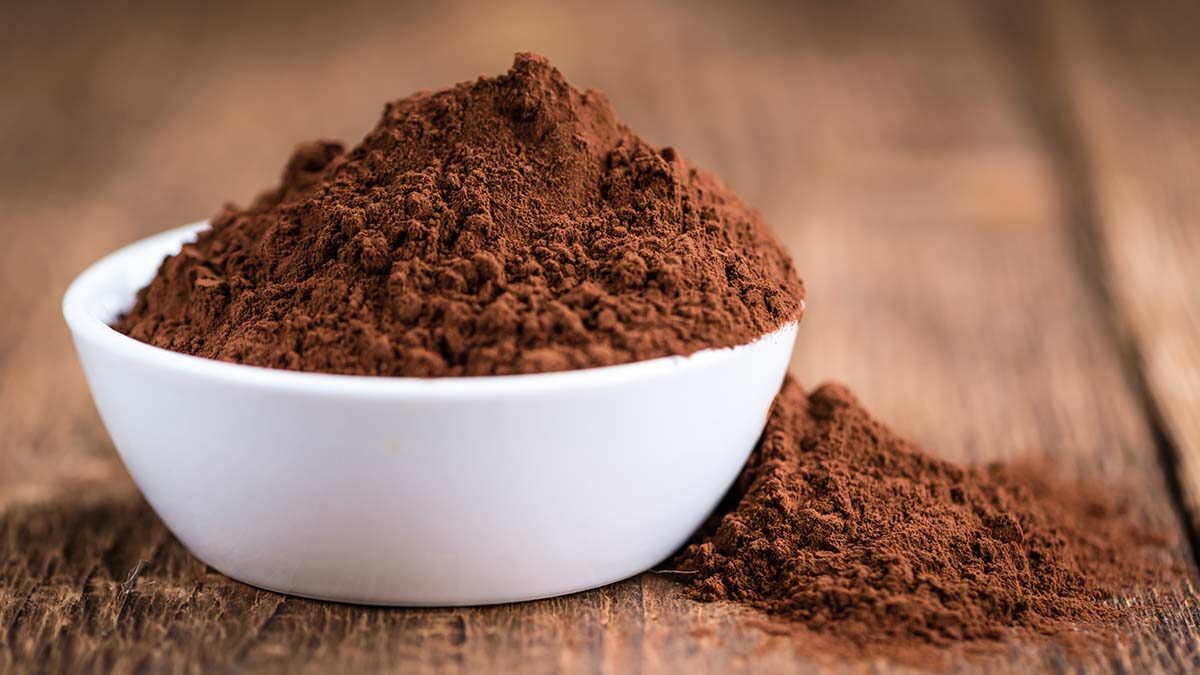Chocolate: delicious beauty or harmful beast? Or both?
Although chocolate products can contain high levels of fat and sugar, the cocoa powder itself may have beneficial effects in a number of chronic disease conditions including heart disease.
Flow-mediated dilation, measured in the main artery of the arm, is considered one of the best measures of arterial function, a predictor of cardiovascular mortality. Researchers found that a little cocoa can give one a significant boost in arterial function within hours of consumption. It doesn’t take much—just about a teaspoon of natural cocoa powder (or about a tablespoon or more of Dutched cocoa). For a graph of this, check out my video, Dark Chocolate and Artery Function.
Now, it might make us a little suspicious that the author of this study works in Hershey, Pennsylvania, at the Hershey Medical Center, and has accepted money from our largest chocolate manufacturer’s Center for Health and Nutrition, conveniently located near the intersection of Chocolate and Cocoa Avenue (seriously!).
However, putting together all of the best available evidence, dozens of randomized controlled trials, arterial function was significantly improved within hours, and after weeks and months of chronic cocoa consumption. It’s always difficult to tease fact from fiction when such powerful financial interests are involved though. Many of the other studies were funded by industry as well, and as in all areas of research, evidence suggests that industry funding is associated with pro-industry conclusions. But even after removing studies funded by industry, reviewers found the same protective effect.
The reason researchers often measure arterial function in the arm rather than where we really need it—in the coronary arteries of the heart—is that it would require an angiogram, which is a much more invasive procedure. But what if we were able to find people already scheduled for an angiogram anyway? A double-blind, randomized trial of people already scheduled for an angiogram found that dark chocolate actually opens up coronary arteries. When researchers did what’s called a “cold pressor test,” where they plunge subjects’ hands into buckets of ice water, they found that after dark chocolate consumption, arteries actually dilated when they’re normally supposed to constrict.
Because chocolate also contains fat and sugar, we have to be careful. Furthermore, most chocolate products are manufactured with milk, an ingredient known to influence the antioxidant capacity in our blood. Even if milk chocolate had the same flavonoid phytonutrient content as dark chocolate, the antioxidant effect of cocoa is potentially weakened in the blood when milk is consumed.
So, not only are there triple the antioxidants in dark compared to milk chocolate, but the milk actively works against the effects in the human body. Eat dark chocolate, and we get a nice spike in the antioxidant power of our bloodstreams within an hour. Eat milk chocolate, and we get nothing. If we eat that same dark chocolate with a cup of milk, the benefit is suppressed. The addition of milk, either in your stomach or in the chocolate, inhibits the within-body antioxidant activity of chocolate and the absorption into the bloodstream of one of the target phytonutrients.
Sugar isn’t good for us either. Sugar impairs arterial function. One bottle of soda’s worth of sugar can cripple arterial function. That’s why sugar-free cocoa improves arterial function better than the same amount of cocoa with sugar added. So, eliminating sugar appears to amplify the beneficial effects of cocoa.
The bottom line is that although the positive effects of chocolate and cocoa products seem apparent, precautions exist when we’re talking about the calories, fat, and sugar in chocolate. Cocoa powder, then, offers the best of both worlds. Although not as tasty, cocoa-based products with little or no sugar or fat are certainly preferred. And we can make them tasty as I note in my healthy chocolate ice cream video.
More on the corrupting effect of money in nutrition research in Academy of Nutrition and Dietetics Conflicts of Interest.
What effects do other foods have on arterial function? See:
- The Power of NO
- Walnuts and Artery Function
- Eggs and Arterial Function
- Low Carb Diets and Coronary Blood Flow
-Michael Greger, M.D.
PS: If you haven’t yet, you can subscribe to my free videos here and watch my live year-in-review presentations Uprooting the Leading Causes of Death, More Than an Apple a Day, From Table to Able, and Food as Medicine.
